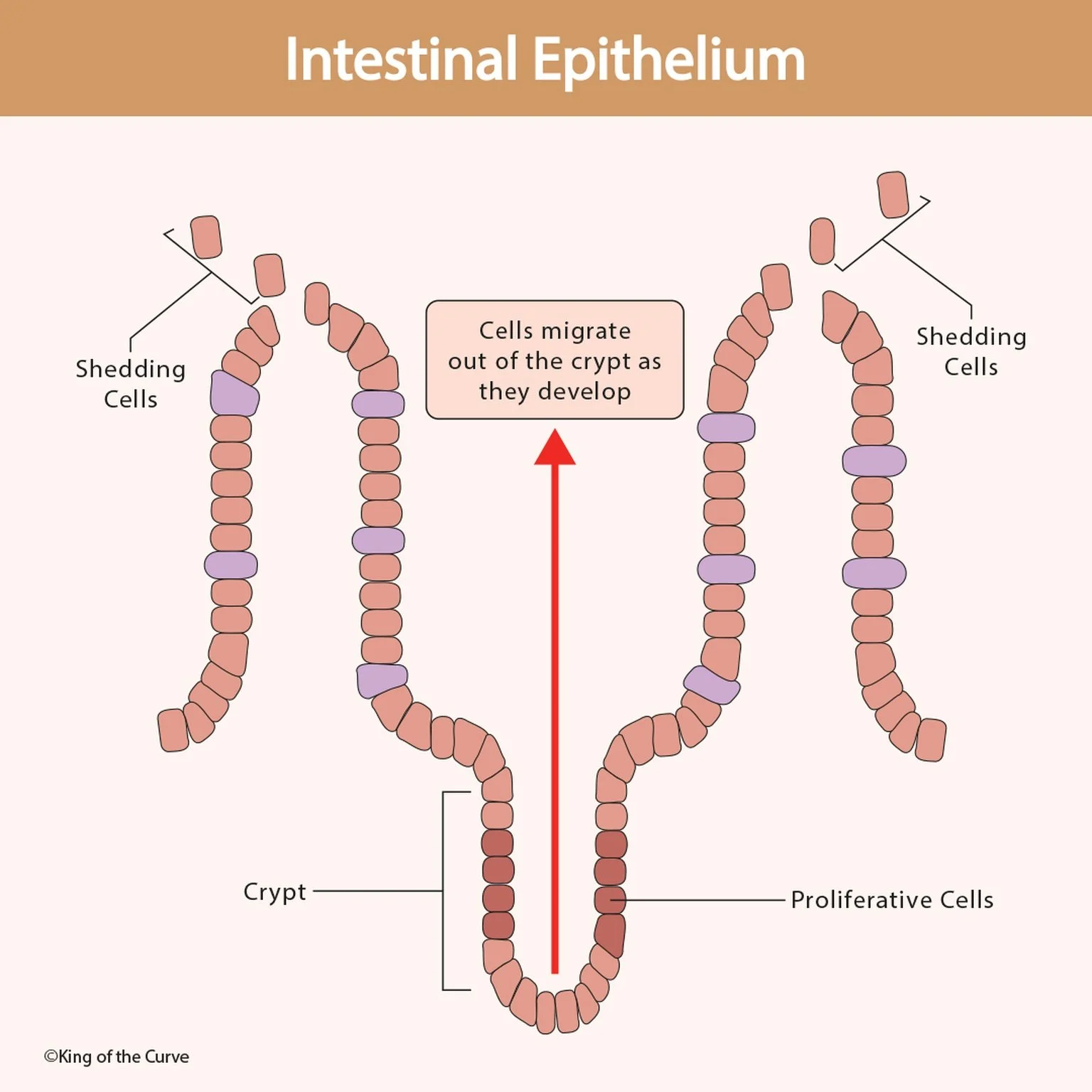
🧬 Intestinal Epithelium: Structure, Renewal, and Function
Explore the structure and renewal cycle of the intestinal epithelium, including crypt stem cell proliferation, upward cell migration, and surface shedding.
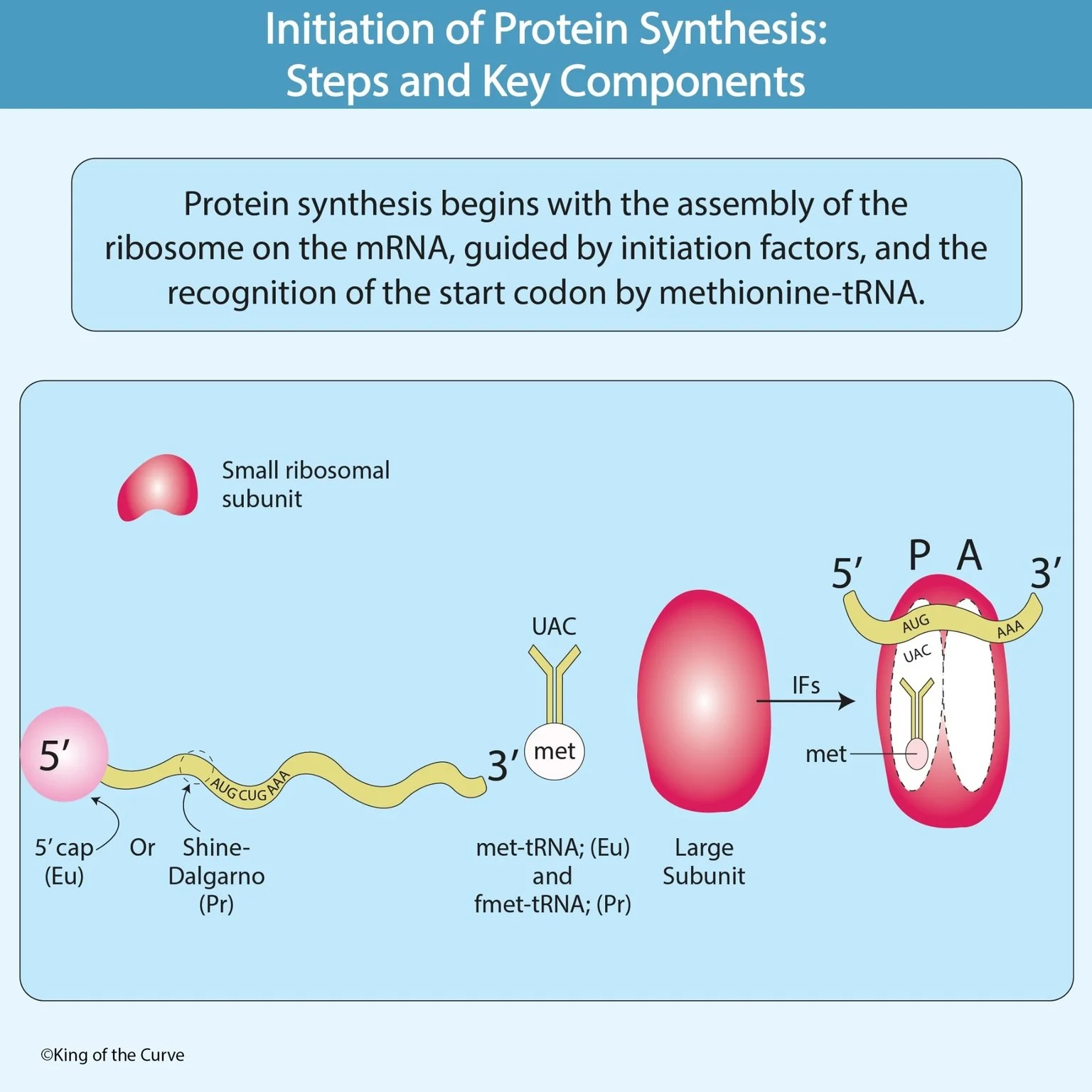
🚀 Initiation of Protein Synthesis: Steps and Key Components Explained
Learn how protein synthesis begins with ribosome assembly, start codon recognition, initiator tRNA, and initiation factors. A clear guide with key steps and components.
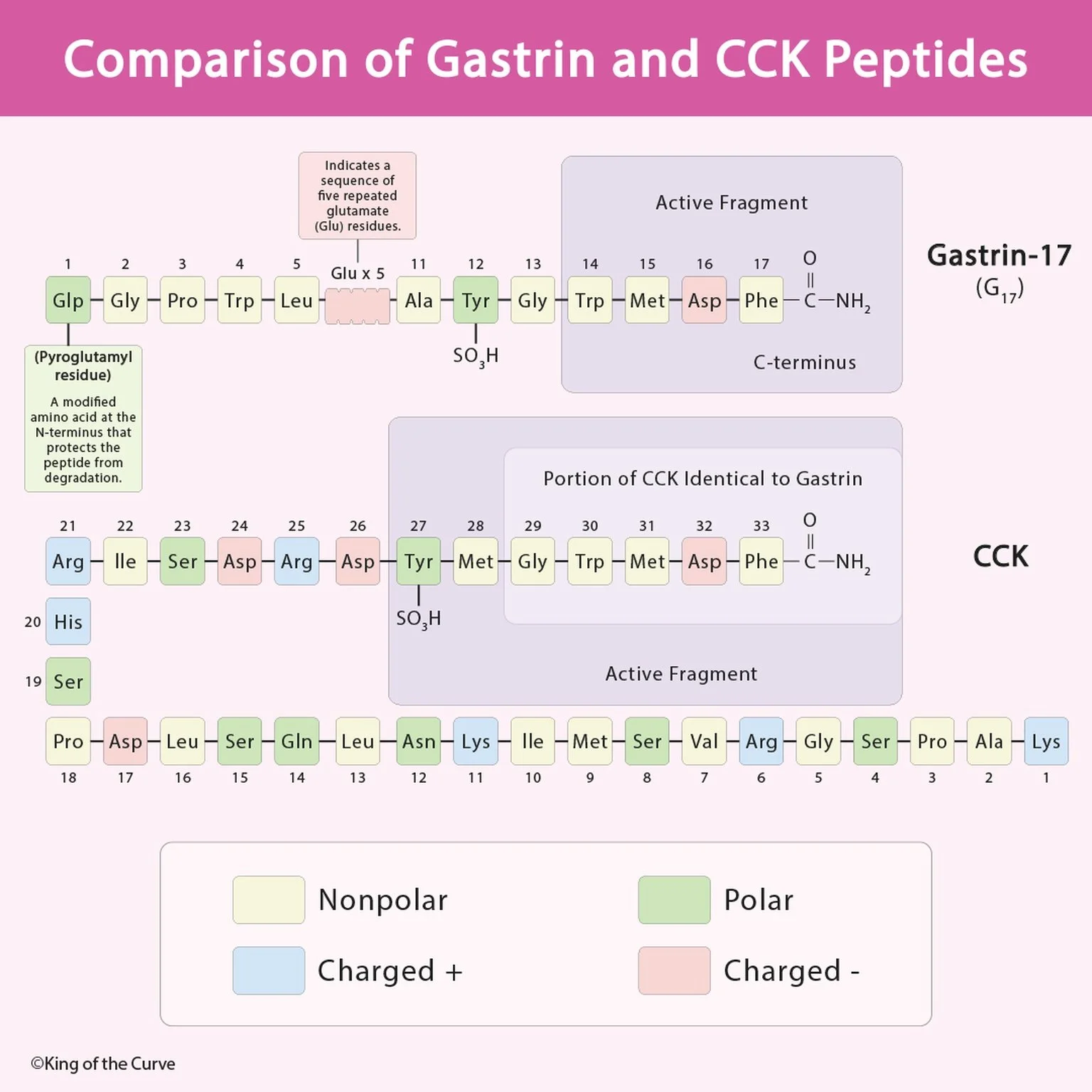
🧠 Why Gastrin vs CCK Matters?
Learn the differences between gastrin and CCK hormones, including release sites, functions, and how they appear in MCAT-style digestion questions.
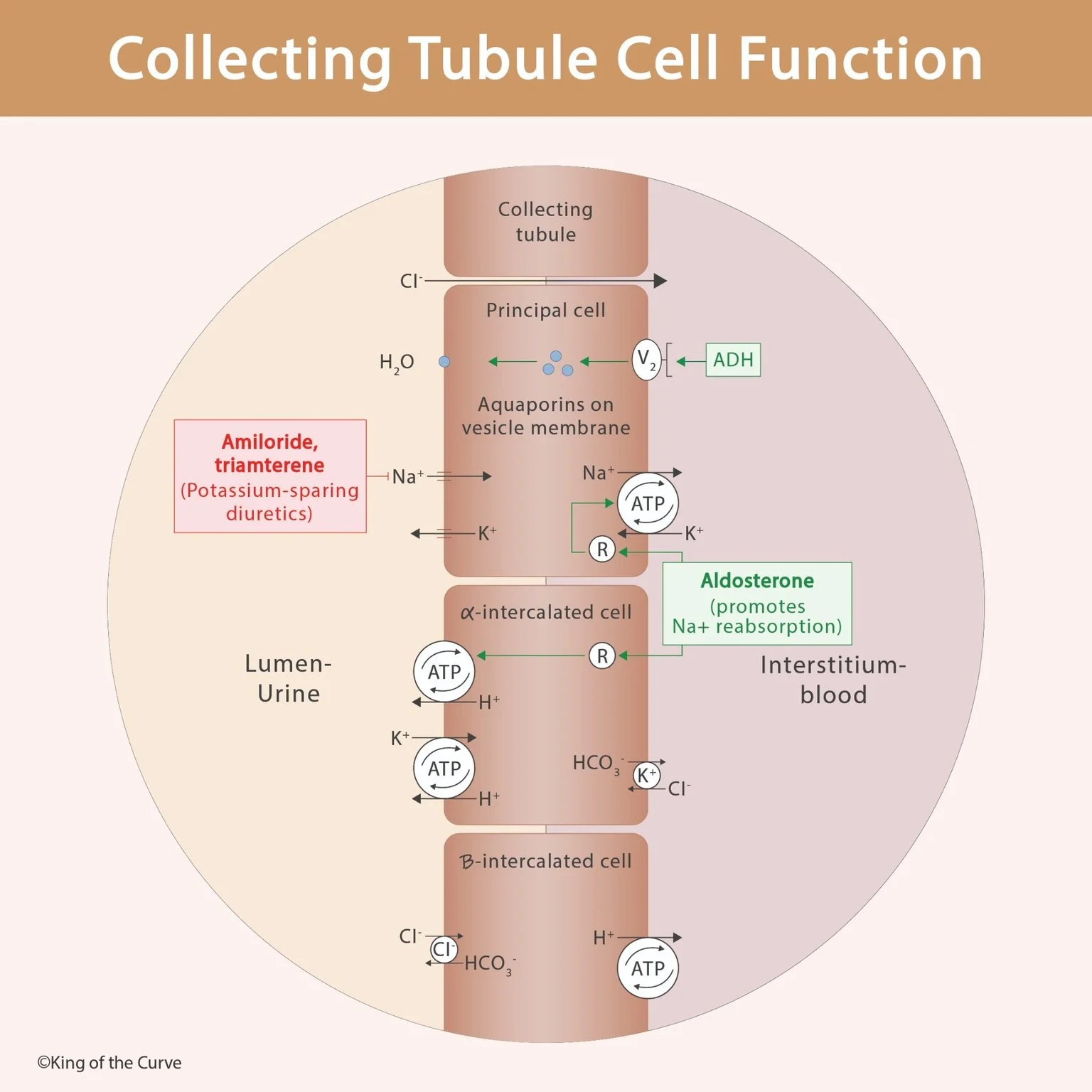
🚰 Collecting Tubule Cell Function Explained: ADH, Aldosterone, and Diuretics
Learn how the collecting tubule regulates water, sodium, potassium, and pH through ADH, aldosterone, and potassium-sparing diuretics.
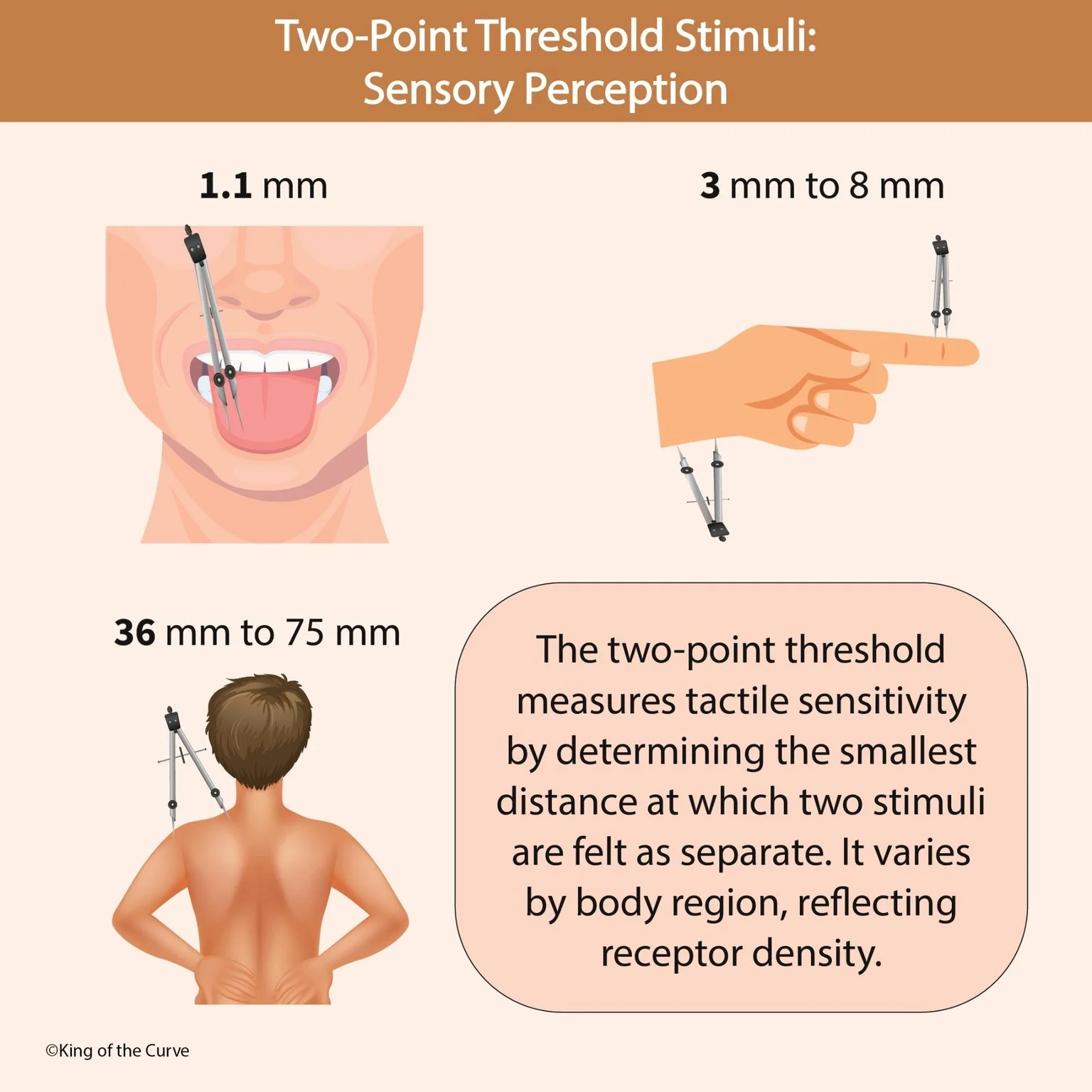
🧠 Two-Point Discrimination Explained: Why Your Tongue Beats Your Back
Learn two-point discrimination (two-point threshold), why it varies by body region, and how receptor density affects touch high-yield for MCAT/NCLEX.
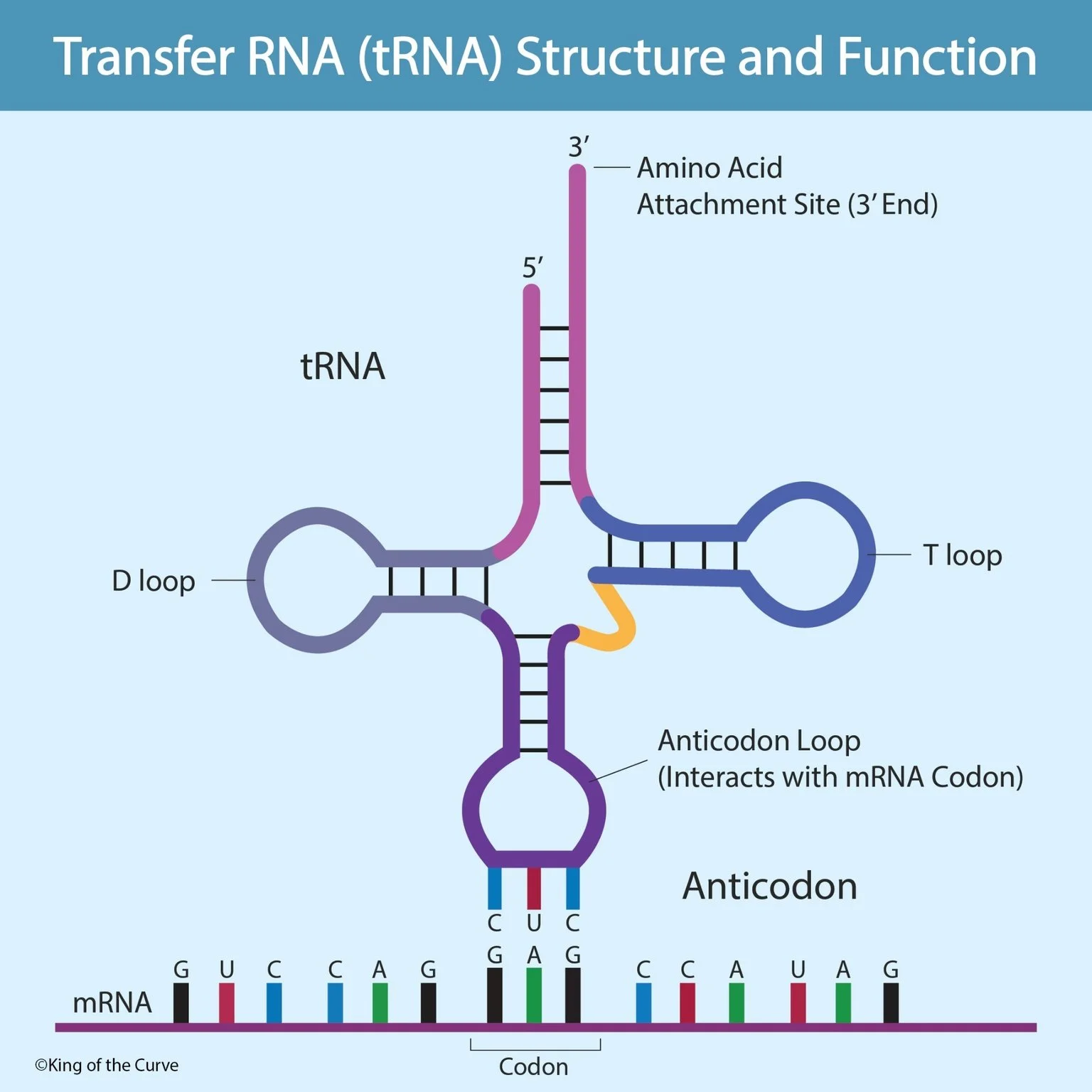
🧬 Transfer RNA (tRNA): The “Adapter” Molecule That Makes Protein Synthesis Work
Learn tRNA structure, anticodon function, and how it matches mRNA codons during translation. Includes MCAT shortcuts and visual explanations.

🧬 Pathways of Hybridization: How New Species Emerge
Explore the fascinating pathways of hybridization and how they lead to new species formation. Learn about introgression, hybrid zones, and species merging with an easy-to-understand breakdown of evolutionary processes.

🩺 Pancreatic Tumor Surgery: Before and After
Discover how pancreatic tumor surgery transforms the digestive system. Learn what happens before and after surgery, including tumor removal, reconstruction of the pancreas, bile duct, and small intestine, plus recovery insights and outcomes.

🩺 Pancreatic Enzyme Activation: The Key to Protein Digestion
Learn how pancreatic enzymes like trypsin, chymotrypsin, and elastase are activated to aid in protein digestion. Understand the enzyme activation cascade, functions, and clinical significance of this essential digestive process.
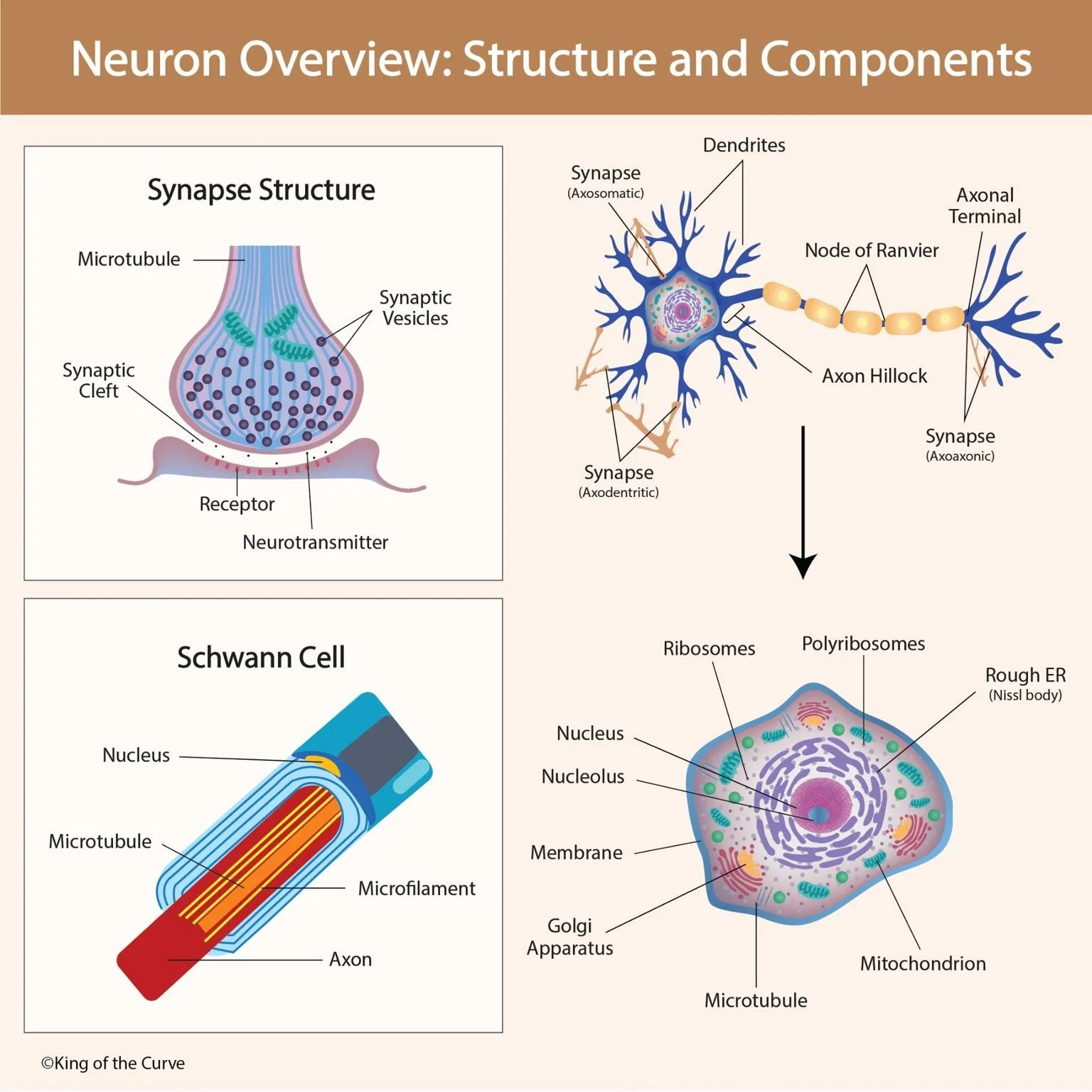
🧠 Neuron Overview: Structure and Components
Explore the structure and function of neurons from dendrites and axons to Schwann cells and synapses. Learn how neurons transmit electrical and chemical signals, with key details for MCAT and NCLEX exam prep.

🧠 Nervous System Development
Explore how the human nervous system develops from the neural plate and neural crest cells. Learn the roles of cranial and trunk neural crest cells, their derivatives, and how molecular signaling shapes neurodevelopment.

🌬️ Negative Pressure Breathing: How Your Body Pulls Air Into the Lungs
Learn how negative pressure breathing allows air to flow into your lungs through diaphragm movement and pressure changes. A key MCAT and NCLEX physiology concept, explained visually by King of the Curve.

⚡ Mechanism of Titratable Acid Excretion in α-Intercalated Cells
Understand how α-intercalated cells in the kidney regulate acid-base balance through ATP-driven proton pumps and carbonic anhydrase. Learn how titratable acid excretion works a must-know concept for the MCAT and NCLEX with this King of the Curve visual.

🧬 Understanding the Lymphatic and Immune Systems
Discover how the lymphatic and immune systems work together to maintain fluid balance, fight infections, and protect your body. Learn with King of the Curve!

🦵 Understanding the Lower Limb Arteries: Pathways of Circulation
Explore the anatomy and function of the lower limb arteries, including the femoral, popliteal, and tibial branches. Learn their clinical importance, blood flow patterns, and relevance to peripheral artery disease.

💉 Understanding Lower GI Bleeding
Learn about lower GI bleeding, its causes like inflammation, abscess, and perforation, and how it differs from upper GI bleeding. Explore our detailed infographic and table comparing symptoms, diagnosis, and treatment approaches.

🧬 Lobules of Liver: Structure, Function, and Blood Flow Explained
Discover the detailed anatomy and physiology of liver lobules — the functional units of the liver. Learn how blood and bile flow through the hepatic lobule, the role of hepatocytes, and the significance of the portal triad. Perfect for MCAT, USMLE, and NCLEX preparation with King of the Curve.

🩸 Liver Sinusoid and Blood/Bile Flow
Understand liver sinusoid structure and blood/bile flow with King of the Curve’s visual guide. Perfect for MCAT, USMLE, and NCLEX students.

🧬 Life Cycle of Hepatitis B: From Infection to Replication
Learn the life cycle of Hepatitis B with King of the Curve’s visual guide. Understand replication, reverse transcription, and clinical relevance for MCAT & USMLE.

💧 The Left Kidney: Structure, Function, and Clinical Relevance
Understand the anatomy and function of the left kidney with King of the Curve’s visual guide. Learn about renal blood flow, filtration, and clinical relevance.
